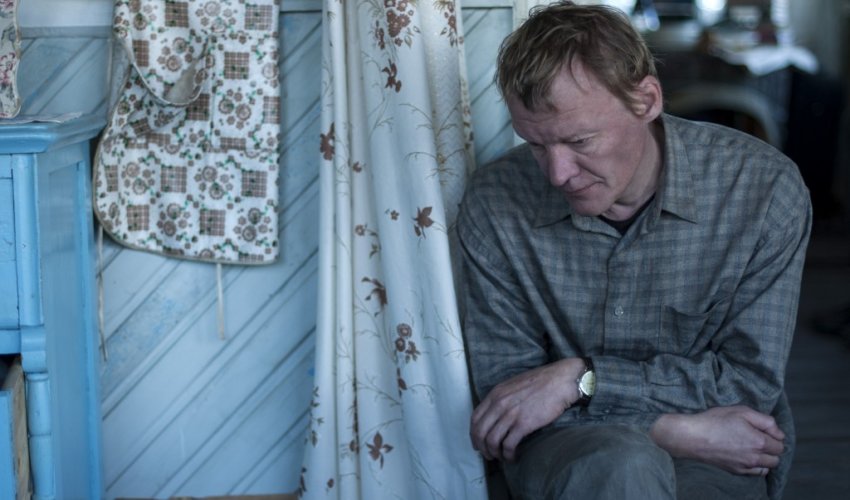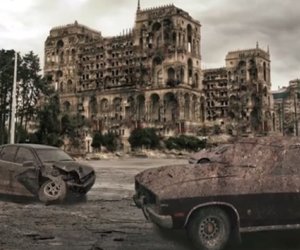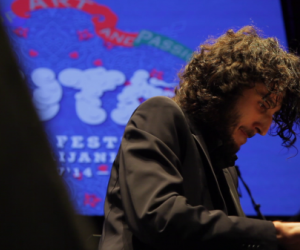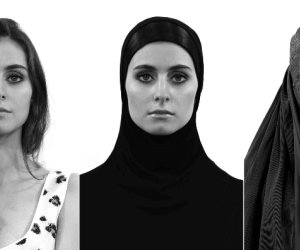An Oscar Russia really doesn’t want to win

"Leviathan” is due to become one of the most celebrated Russian films in the West in decades, yet it may be banned in Russia. The film, which was the first from the country to win a Golden Globe since "War and Peace” in 1968, has also been nominated for an Oscar. But in Russia, the film has provoked a host of polarized reactions.
The movie is a satirical social commentary set in a fictional fishing town on the northern coast of the Barents Sea. It tells the story of Nikolai, an alcoholic car mechanic, who tries to save his family home from being expropriated by the corrupt mayor. Nikolai thinks that the mayor wants his property and land for himself, though we later learn it is used to build a church.
"Leviathan” is grimly funny in places, but it also shows the corruption and callousness of a whole social system, from the mayor down to the courts and police, with particular ire reserved for a self-serving and venal Orthodox Church.
The "Leviathan” of the film refers to the state and its active supporter, the Orthodox Church, which leave the ‘little man’ feeling helpless when confronted by them. The title is likely derived from Thomas Hobbes’ political treatise "Leviathan,” about an undivided society ruled by an absolute sovereign who demanded loyalty and faith. The director, however, claims that the film is not just about Russia. He insists that, with its explicit reference to the Book of Job, it is a universal parable about today’s world.
Still, the present-day relevance to today’s Russia is inescapable. Corruption, lawlessness, betrayal and harsh criminal sentences loom large in the film. The case of Mikhail Khodorkovsky, the wealthy oligarch subjected to a show trial, showed the country that an individual could be arrested, imprisoned and deprived of his property, at the will of the state. According to one recent survey, corruption is ranked as the second biggest challenge facing the country, after housing.
"You never had any rights, you don’t have any and you never will have any,” says one character, Vadim, summing up Russian society. Many would agree with him.
As familiar as these scenes may be to many in Russia, it’s unsurprising that the movie has many detractors there. And it isn’t the first time that an artistic work has raised uncomfortable questions about Russia. Indeed, the cruelly hierarchical and unaccountable state painted by "Leviathan” has much in common with the 2006 novel by Vladimir Sorokin called "Day of the Oprichnik.” Sorokin imagines a Russia of the near future ruled by a cruel and ruthless tsar, in the mold of Ivan the Terrible. In it, individuals are destroyed on the whim of the sovereign. There are no civil or legal rights and life and death depend on the will of one man to decide what is good for the sake of Russia.
"Leviathan is filthy libel against the Russian church and the Russian state” wrote the Orthodox activist Kirill Frolov, spokesman for the Head of the Association of Orthodox Specialists, on his Facebook page. Frolov, who wants the film to be banned for its negative picture of the Church, added, "I would stop worrying that we are supposedly restricting freedoms, we don’t need to justify ourselves. Leviathan is evil, and there is no place for evil in the cinema.”
Not everyone agrees with Frolov, of course. The eminent film critic Andrei Plakhov has called the film "a powerful and epic wonder that has crawled out from inside the guts of Russian life.”
This disagreement is reflected in the responses of ordinary people. Some decry the film. On Russia’s leading entertainment sites, comments varied. One person on Afisha, a site devoted to discussing films, theatre and TV, called "Leviathan” "nonsense aimed at blackening Russian society.”Another, however, praised it for telling "the truth about our Russia.”
The fact that the film is the official Russian nomination for the Best Foreign Language Film, chosen by a committee consisting of former Russian Oscar winners or nominees is evidence of a country currently unsure of itself, its present and its future.
Of course, Russia is far off from such brutal despotism. Yet, somewhere in the national psyche, fears that it might end up like that one day linger. Leviathan’s power comes from tapping into these dark thoughts and trying—if censors permit them to do so—bring them into the open.
(Reuters)
ANN.Az
Similar news
Similar news
Latest news 
More news 



































 Photo
Photo 



 Video
Video 

